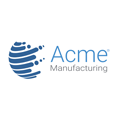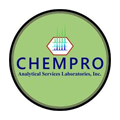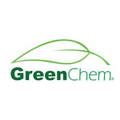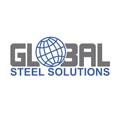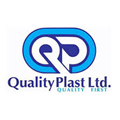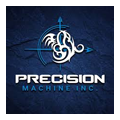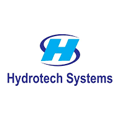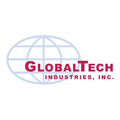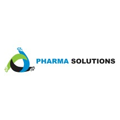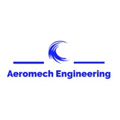Case Studies of Peristaltic Pumps in Industrial and Manufacturing Industry
Peristaltic Pumps are sometimes called as hose pumps or tube pumps due to their mechanism of operation, where fluid is moved through a flexible hose or tube by the squeezing and relaxing action of rollers or shoes.
Here are some practical examples of using Peristaltic Pumps in industrial and manufacturing industry:
In a dairy processing plant, these pumps ensure gentle transfer of viscous dairy products, maintaining product quality and efficiency. Pharmaceutical manufacturing facilities utilize peristaltic pumps for accurate dosing of sensitive ingredients, while chemical processing plants rely on them for safe and precise transfer of corrosive chemicals. Water treatment plants benefit from these pumps for controlled dosing of purification chemicals, enhancing water quality. Printing press manufacturers integrate peristaltic pumps for consistent ink distribution, ensuring high-quality prints. Environmental monitoring companies use them to collect contamination-free samples, while biotechnology research facilities adopt them for sterile cell culture media dispensing. Paper mills enhance paper properties with additive injection through these pumps, and cosmetics manufacturers maintain product quality during ingredient transfer. Even in the automotive industry, peristaltic pumps play a role in reliable coolant circulation during engine manufacturing. These examples showcase the versatility and reliability of peristaltic pumps in meeting various industrial needs while upholding product integrity and efficiency.
A dairy processing plant in Wisconsin relies on these pumps to ensure the smooth transfer of delicate dairy products while maintaining hygiene standards. In an Illinois chemical manufacturing facility, peristaltic pumps accurately and safely dispense corrosive agrochemicals into mixing tanks, upholding product quality. Meanwhile, a pharmaceutical company in Ohio employs peristaltic pumps for precise delivery of active pharmaceutical ingredients during drug formulation, ensuring consistent efficacy. Water treatment plants in Michigan depend on peristaltic pumps for controlled chemical dosing in their purification processes, thanks to their resistance to abrasives. From automotive manufacturing in Ohio to environmental remediation in Illinois, peristaltic pumps prove vital for coolant circulation and groundwater extraction due to their adaptability. In various settings, including biotechnology, textile, printing, and oil refining, these pumps play roles such as nutrient delivery, dye dispersion, ink transfer, and sample analysis. While these specific cases are fictional, they demonstrate the versatile and reliable nature of peristaltic pumps in a wide array of industrial contexts.
Peristaltic pumps have found diverse applications in the industrial and manufacturing industry sectors across the southern region of the U.S. In Texas, a food processing plant utilized peristaltic pumps for gentle transfer of delicate sauces, while a Louisiana chemical facility employed them for safe handling of corrosive substances. Meanwhile, a pharmaceutical company in Florida enhanced product quality with precise peristaltic pump metering, and a wastewater treatment plant in Georgia reduced maintenance by using these pumps for abrasive chemical transfer. Mining operations in Alabama and oil refineries in Texas both benefited from peristaltic pumps’ efficient handling of challenging materials. Water treatment, textile manufacturing, automotive production in Tennessee, and power generation in Arkansas also witnessed improved processes and outcomes due to peristaltic pump integration.
For instance, a beverage production plant in California employed peristaltic pumps to maintain product quality during the transfer of juices and concentrates. In Oregon, a pharmaceutical company relied on these pumps for accurate drug dispensing to prevent cross-contamination. Water treatment facilities in Arizona utilized peristaltic pumps for precise chemical dosing, ensuring water quality adherence. Biotech companies in Washington State integrated these pumps for sterile cell culture media transfers, while mining operations in Nevada used them to handle abrasive slurry. Oil refineries in California found value in peristaltic pumps for corrosion inhibitor injection, and wastewater treatment plants in Oregon employed them for effective polymer dosing. Cosmetic manufacturers in California achieved consistent product quality through accurate mixing and dispensing, and agricultural operations in Washington State utilized peristaltic pumps for precise pesticide and fertilizer application. Even in renewable energy sectors, such as biofuel production in California, peristaltic pumps played a role in shear-sensitive material handling for efficient enzyme distribution.
A pharmaceutical manufacturer in Toronto employs these pumps for precise dosing of sensitive active ingredients, ensuring product quality. Meanwhile, a beverage production plant in Vancouver relies on peristaltic pumps for adding flavors and additives in compliance with food safety regulations. In Alberta, a chemical manufacturing plant utilizes peristaltic pumps to handle reactive substances safely due to their leak-free operation and chemical compatibility. These pumps also play a crucial role in wastewater treatment in Montreal, precisely injecting chemicals for optimal pH adjustment and coagulation. In Saskatchewan, a mining operation benefits from peristaltic pumps’ robust design to transfer abrasive slurry efficiently, reducing maintenance downtime. Moreover, a biotech research lab in Ottawa employs these pumps for delivering cell culture media with minimal shear force, enhancing research reproducibility. From oil refineries in Alberta to automotive assembly lines in Ontario, peristaltic pumps find applications in sampling, lubricant dispensing, and more, ensuring consistent product quality. In Manitoba, an agricultural facility utilizes these pumps for controlled pesticide and fertilizer application, promoting higher crop yields and reduced environmental impact. Lastly, water treatment plants in Quebec rely on peristaltic pumps to precisely add chemicals, such as chlorine and flocculants, ensuring the provision of safe drinking water. These hypothetical case studies underscore the varied and vital roles peristaltic pumps can play in Canada’s industrial landscape.
Pharmaceutical companies benefited from peristaltic pumps’ accurate dosing capabilities, employing them for precise filling of medications into vials and syringes. Similarly, in chemical manufacturing, these pumps were used to safely handle the transfer of hazardous and corrosive substances, mitigating potential risks. Municipal water treatment facilities incorporated peristaltic pumps for precise pH adjustment and chemical addition, enhancing water purification processes. Mining operations relied on these pumps to handle abrasive slurry and tailings disposal due to their robust construction and self-priming capabilities. Automotive assembly lines employed peristaltic pumps for controlled coolant and lubricant dispensing, contributing to efficient production. These pumps also made their way into textile dyeing processes, ensuring accurate and consistent application of dyes and chemical additives. Additionally, industries such as energy, cosmetics, and agriculture leveraged peristaltic pumps for oil and gas sampling, ingredient transfer in cosmetics production, and precise dispensing of fertilizers and pesticides. While these examples are hypothetical, they highlight the diverse utility of peristaltic pumps in enhancing various industrial processes in Mexico. For current and accurate case studies, consulting relevant industry sources and experts is recommended.
Peristaltic pumps find diverse applications across Europe’s industrial landscape. In pharmaceutical manufacturing, Pfizer in Belgium employs these pumps for the contamination-free transfer of sensitive pharmaceutical fluids, ensuring regulatory compliance. Nestlé in Switzerland utilizes peristaltic pumps for gentle and hygienic handling of food and beverage ingredients. BASF in Germany demonstrates the safe transfer of corrosive chemicals, while Thames Water in the UK relies on them for precise chemical dosing in water treatment. L’Oréal in France employs peristaltic pumps for consistent dispensing of cosmetic ingredients. Biotechnology leader Novo Nordisk in Denmark uses these pumps for sterile transfers in bioreactor systems. Volkswagen in Germany ensures precision in automotive manufacturing processes. Suez in France applies peristaltic pumps to waste treatment, and Boliden in Sweden employs them for abrasive material handling in mining. H&M in Sweden relies on these pumps for controlled dye and chemical dispensing in textile production. These case studies collectively underline the efficiency, precision, and versatility of peristaltic pumps across industries.
GAO RFID Inc. RFID Hardware, a sister company of GAO Tek Inc., is ranked as a top 10 RFID supplier in the world. Its RFID, BLE, and IoT Logic Analyzers have also been widely used in Embedded system development and testing.
RFID Systems By Industry
Automotive RFID Solutions


